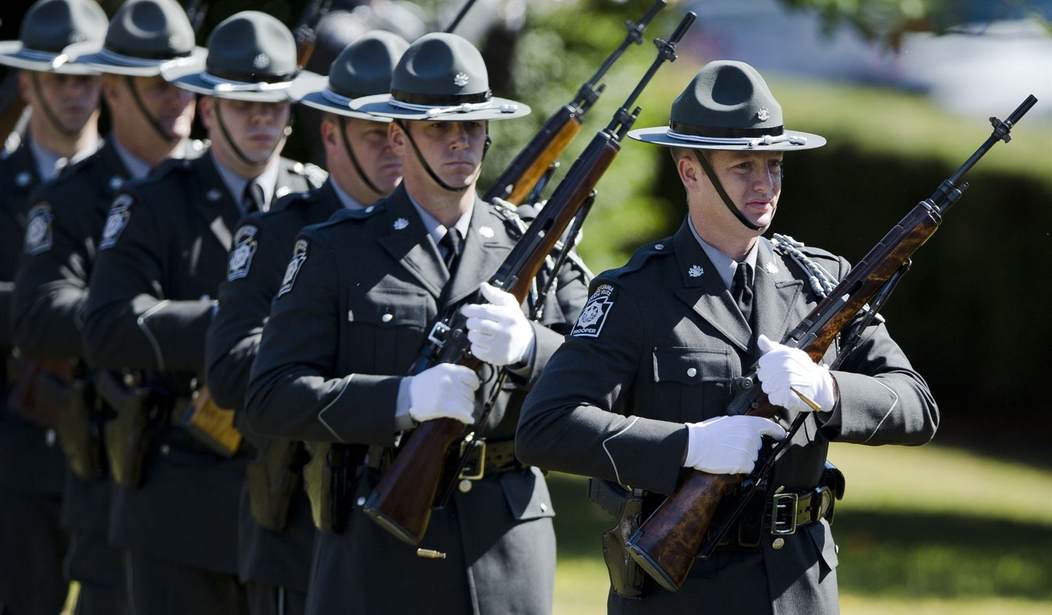In a victory for free speech and the First Amendment, U.S. District Court Judge Karen Marston has stuck down a Pennsylvania township's ban on "thin blue line" flags.
A federal court has ruled that a prohibition by a Pennsylvania community on the display of the American flag with a thin blue line that is supportive of law enforcement is unconstitutional.
The Springfield Township, about 15 miles from Philadelphia, argued the use of the flag was creating "discontent and distrust" in the community against the police. However, U.S. District Judge Karen Marston ruled the ban restricts the free speech of public employees under the First Amendment.
"The Township repeatedly suggests that the ‘Thin Blue Line' American Flag is of limited, if any, public value or concern because it is ‘offensive’ and ‘racist,’" Marston wrote in the court opinion. "But as this Court previously told the Township, ‘the First Amendment protects speech even when it is considered ‘offensive.’"
For most of us, there's nothing offensive about the thin blue line flag, nor about the thin red line flag, intended to honor rescue workers and firefighters. But that, honestly, is neither here nor there; free speech applies especially to ideas some might find offensive. Free speech, the principle of freedom of expression – really, honestly free speech – applies to everyone. That means you have to tolerate the KKK having parades and put up with a certain Reverend Wright yelling “God d*** America” at his racist pulpit. It means that the worst among us, as well as the best among us, all get their place on the soapbox. The fact that the soapbox is now often digital does not matter, and nobody who understands the idea of free speech should be concerned about the means by which that speech is presented.
This kind of expression, be it thin blue line flags, NRA stickers, or "COEXIST" bumper stickers, is all protected by the First Amendment. This includes speech about politics, policies, social issues, and other matters affecting the public, even the reprehensible and detestable viewpoints, because all of these things are precisely what the First Amendment was meant to guarantee. There is no "...unless someone has their feelings hurt" clause in the First Amendment, and it's good to see a U.S. District Court judge uphold that fundamental freedom. It is only when speech crosses over the line to inciting violence that anyone should become concerned.
The attorney for the police officers who were the plaintiffs in this case had this to say:
Wally Zimolong, an attorney representing the police officers, said the court's ruling was a vindication of his clients' claims.
"It was a resounding win for the First Amendment and free speech," he said. "It showed once again that the government cannot engage in viewpoint discrimination based upon a message it disagrees with or finds offensive."
Bear in mind that while this is a victory for free speech, this is just one decision. The First Amendment is still under attack from various bad actors.
Winston Churchill, as was his usual habit, addressed himself on this principle of a free society very plainly:
Everyone is in favor of free speech. Hardly a day passes without its being extolled, but some people's idea of it is that they are free to say what they like, but if anyone else says anything back, that is an outrage.
Enough with the outrage. Let freedom ring!














Join the conversation as a VIP Member